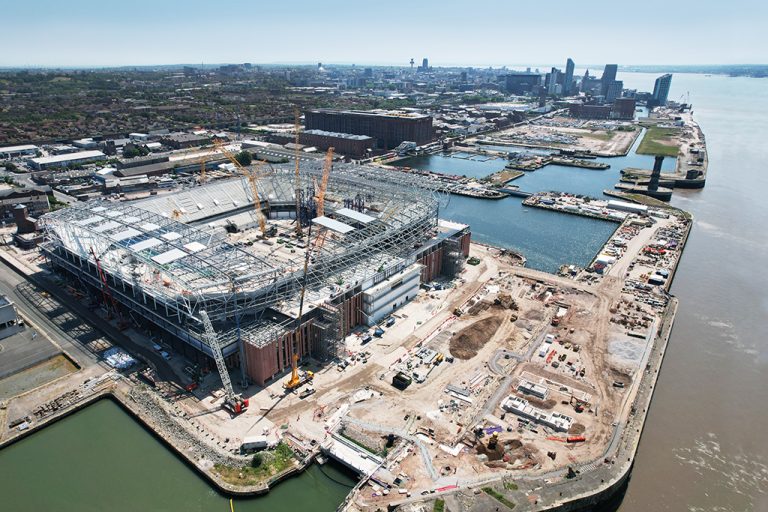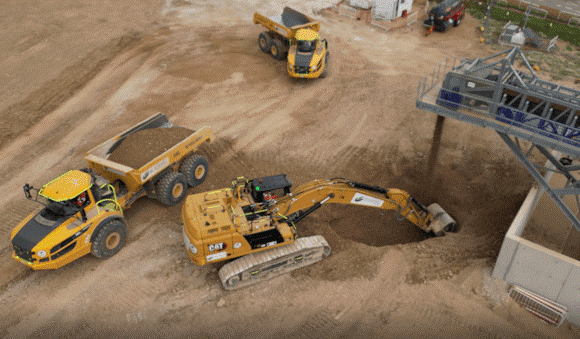A Victorian building close to the Imperial War Museum in London which has been designed and renovated into an architects practice, has been highly commended at this year’s annual Secured by Design (SBD) awards. The historic nature of the building and its position within the West Square Conservation Area in Southwark required a balanced approach to the implementation of SBD Commercial Developments guidance, with the building being renovated and developed to include office space, a communal reception area, staff meeting space and staff terraces at the rear. Pre-planning commenced in November 2019 with EPR architects and the developer working with the local police Designing Out Crime Officer (DOCO) to ensure that whilst the building was sympathetically renovated keeping as many original features as possible, appropriate security measures commensurate to the local crime risk were included in the building. The security features in the detached building, which had been unoccupied for some time, included new PAS 24:2016 certified sash windows; a new heritage style timber front door certified to PAS 24:2016 with a secondary door fitted internally on access control to allow for entry/exit during opening hours; access controlled doors leading from the reception areas to ensure that access into the building by visitors was controlled appropriately; a full range of CCTV cameras covering key positions, both internally and externally and monitored from reception; a monitored intruder alarm including glass sensors and door contacts; appropriate lighting to the front and back of the building; and the reintroduction of gates on the boundary of the building which had previously been removed. Receiving the award, Metropolitan Police Designing Out Crime Officer Alan Denyer said: “It was a pleasure to work with EPR on the crime prevention and SBD recommendations for this development. The result is a secure development that provides reassurance to those working at the location whilst respecting the architectural significance of the building”. Edward Wood, Associate Director EPR Architects, said: “As a reinvention of an existing Victorian building, the transformation of All Saints has not only provided us with a beautiful new studio but has also significantly enhanced the building’s security measures. “Achieving a Secured by Design Development Award certificate, our design introduced a fully integrated alarm and surveillance system and access control measures, including bespoke gates to the side of the building. Due to its historic nature, the integration of physical security upgrades needed to be carefully considered from the outset to ensure their appearance complimented the detailing of the existing building. With all the new measures and upgrades seamlessly in place, we feel confident that All Saints is a safe and secure workspace for the EPR team”. Improved security Developers around the UK can achieve SBD awards for incorporating crime prevention measures and techniques into their developments in all kinds of building sectors, such as residential, education, health, transport, commercial, retail, sport and leisure. Indeed, SBD can be used as evidence to discharge third-party obligations under Part Q of Schedule 1 (Security) to the English Building Regulations, the Scottish Building Standard 4.13 (Security) and Welsh Building Regulations Part Q (Security – Dwellings). These awards are gained by working with police Designing Out Crime Officers (DOCOs), who advise architects, developers and local authority planners long before construction begins – and continue to provide advice and guidance until the development is complete. Academic and other research shows that improving standards of security in brand new and refurbished properties, helps deter and reduce crime. Reducing crime and the fear of crime has direct links to better physical and mental well-being, such as with regard to high volume crimes like domestic abuse. The built environment influences the behaviour of people who work, live, socialise or simply pass through. SBD seeks to create environments where the law-abiding feel safe and secure whilst at the same time causing the criminal or anti-social to feel vulnerable to detection and thereby influence behaviour in a positive way. This continues to be a key objective for SBD. Find out more about SBD Developers Awards here. SBD Design Guides SBD has produced a series of authoritative Design Guides to assist the building, design and construction industry to incorporate security into developments to comply with the Building Regulations in England, Scotland and Wales and meet the requirements of SBD. These Design Guides, available to download for free at the SBD website, have been updated over the years to keep pace with changing patterns of criminal behaviour and advances in building design and new technology. They are a valuable source of reference to architects, developers, self-builders, local authority planners and police officers and cover a range of building sectors, including residential, education, health, transport and commercial. Police Designing Out Crime Officers DOCOs provide specialist crime reduction advice to the public, businesses and colleagues about premises or property security. They also work with building developers, architects, and council planning departments regarding new developments and refurbishments, to ‘design out’ crimes like burglary and anti-social behaviour (ASB) by providing advice on street lighting, building and street layout, entrances and exits – as well as preferred standards and specifications for doors, windows, and locks, under the Secured by Design initiative. DOCOs are able to deliver site specific interventions required to help design out crime in areas that suffer disproportionately from acquisitive crime, based on local crime pattern analysis, police, local authority and community engagement and the collective knowledge and experience of how criminals behave. DOCOs are specialist problem solvers, working every day to make a positive difference, changing lives for the better and helping people to be safe and secure in their homes. Contact details for local DOCOs can be found here. Building, Design & Construction Magazine | The Choice of Industry Professionals














